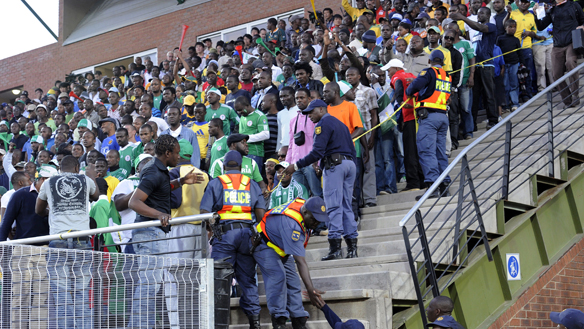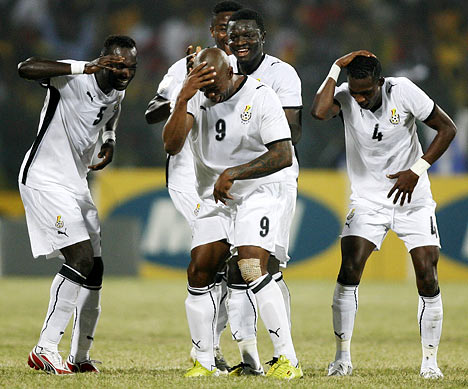
The stage is set for the most riveting match of the African Women’s Championship group stage. Tomorrow (November 4) South Africa take on perennial champions Nigeria. It is a battle between Africa’s powerhouses and fierce rivals. A decade ago, Banyana Banyana and the Super Falcons teams met in an ill-fated AWC final at Vosloorus Stadium, about an hour’s drive from this year’s venues.
On Saturday, November 25, 2000, at least 25,000 spectators packed into the modest Vosloorus stadium. A reporter in attendance described what happened (City Press, 26 November 2000, p. 1):
“The trouble started after unruly, hotheaded Banyana supporters exploded in anger and frustration when Nigeria got their second goal with 18 minutes left on the clock. Local fans considered the goal illegitimate. With Nigeria comfortably up 2-0 in defence of their title, the hotheads started to vent their anger at the assistant referee on the eastern side of the stadium by hurling an assortment of objects, including beer bottles and stones at her. The besieged assistant, in fear of her life, raised her flag to indicate her plight to Cameroonian referee Akono Ondo. Then she sprinted to the safety of the western side, where the other match officials were.
Shortly after this, more objects rained incessantly onto the pitch, clearly aimed at the Nigerians. The situation got further out of control when Nigerian supporters were forced to scurry in all directions in a death-defying scramble from the eastern stands.
Pandemonium broke out when South African and Nigerian fans began hurling abuse and anything they could lay their hands on, including rocks, shoes and umbrellas, at each other. The besieged fans made up largely of many children had to run helter-skelter to avoid the life-threatening stampede. Some of the children were seen tumbling from high up in the stands as the panic-stricken crowd ran in all directions.
The high tension was taken to breaking point by irate fans who constantly pelted the Nigerian players with an array of dangerous objects, thus preventing the match from restarting. Confused match officials, including Safa’s Oliphant and its general manager Dennis Mumble, appealed for calm in the stadium. [. . .]
Once it became evident the game would not resume under the hail of missiles, aimed mainly at the stunned Nigerian players, the embattled officials reluctantly abandoned the game, much to the delight of the Nigerians. As the victors merrily paraded around the field with their trophy, the anarchy and confusion spread to outside the stadium, where wayward fans fought pitched battles.
In the process, police reinforcements came under attack when their vehicles were stoned by a rampaging mob.”
South Africa’s widely celebrated hosting of the 2010 World Cup suggests that a repeat of the violence of 2000 is highly unlikely. However, rampant xenophobia and a 50 percent poverty rate provide kindling that can be ignited by the sparks of football passion and the game’s paradoxical quality to unite while it divides. Check back here for my match report of the Super Falcons – Banyana clash.
